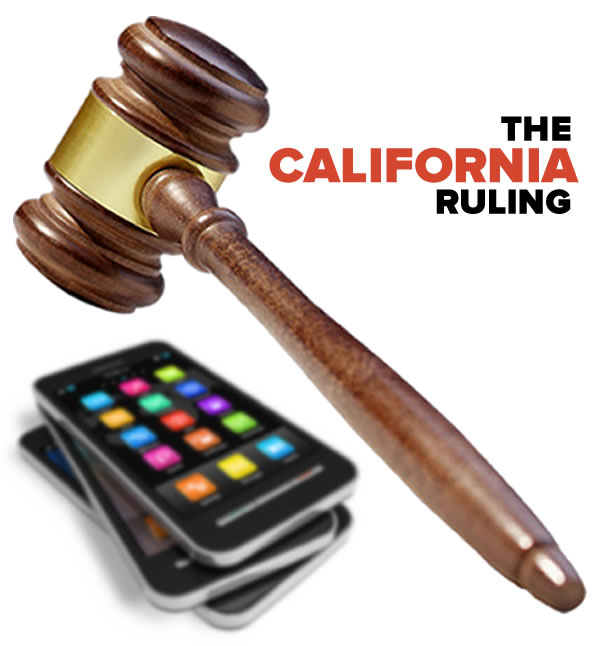
In the case of Cochran v. Schwan’s Home Service, Colin Cochran filed a class action suit against his employer, the largest direct-to-home food delivery service in the U.S., on behalf of customer service managers who weren’t being reimbursed for work-related use of personal mobile phones. Cochran won, and the ruling is expected to have a significant impact on the way companies do BYOD, and in some cases, may even “bring it down”, if the somewhat alarmist title of this CIO article covering the case’s outcome is to be believed.

The Second District Appellate Court of California.
The case was first taken to the Los Angeles Superior Court, and then the Second District Appellate Court, where the ruling was made on Tuesday, August 12th. Judge Teresa Sanchez-Gordon had said that a class action was not the best way to resolve the issue, noting that examination was required to resolve the question of whether Cochran or his live-in girlfriend paid his mobile bill. In the end, the court ruled that even if a family member or friend pays the costs of using a personal mobile device, if that device is used for work-related purposes, the employer is still required to provide reasonable reimbursement for the employee.
“If an employee is required to make work-related calls on a personal cell phone, then he or she is incurring an expense for purposes of labor law,” Judge Judith Ashmann-Gerst wrote for the court. “It does not matter whether the phone bill is paid for by a third person, or at all. In other words, it is no concern to the employer that the employee may pass on the expense to a family member or friend, or to a carrier that has to then write off a loss. It is irrelevant whether the employee changed plans to accommodate work-related cell phone usage. Also, the details of the employee’s cell phone plan do not factor into the liability analysis. Not only does our interpretation prevent employers from passing on operating expenses, it also prevents them from digging into the private lives of their employees to unearth how they handle their finances vis-a-vis family, friends and creditors. To show liability under the labor code, an employee need only show that he or she was required to use a personal cell phone to make work-related calls, and he or she was not reimbursed. Damages, of course, raise issues that are more complicated.”

It wasn’t all that long ago that there were predictions that BYOD stipends would eventually go away and that BYOD for work would be like business clothes: something for which employees would cover the costs and not expect any reimbursement. It was expected in some circles that BYOD stipends would disappear just like reimbursements for telecommuters who used at-home wifi did. The ruling will likely not only render those predictions wrong, it may even lead to the return of reimbursement for wifi for work done at home.
Hyoun Park, Principal Consultant at DataHive Consulting who’s been following the case, says that there are some technical wrinkles in the ruling that need to be worked out. “The court didn’t care about whether you bought 100 megabytes or an unlimited plan. They’re just saying that the company should pay for a portion of the bill. So there’s going to be an argument there.”

In the end, organizations in California with BYOD programs or who require their employees to use their own mobile phones for work will need to review how mobile devices are used in their day-to-day business, and if necessary, make adjustments. They’ll need to review their mobile device use policies and decide if they want to continue requiring employees to provide their own mobile devices for work use. If they decide to rely on individual-liable devices, they’ll need to make certain they know which employee-owned mobile assets are being used for work purposes, implement a stipend or reimbursement policy, and have some kind of mobile management platform to stay on top of these measures.
On the other hand, if a California business decides to simply disallow the use of personal mobile devices for work, they’ll need to come up with an alternative for employees who require mobile devices. This arrangement will also require management of all sorts, from a corporate-liable device policy to manage the inventory, and once again, some kind of mobile management platform to watch over these incredibly portable company assets.
While the ruling won’t take effect until 30 days after it was made and applies only in the state of California, there’s a good chance that it’ll soon affect personal mobiles used for business outside The Golden State. We’ll keep you up-to-date on these developments.
